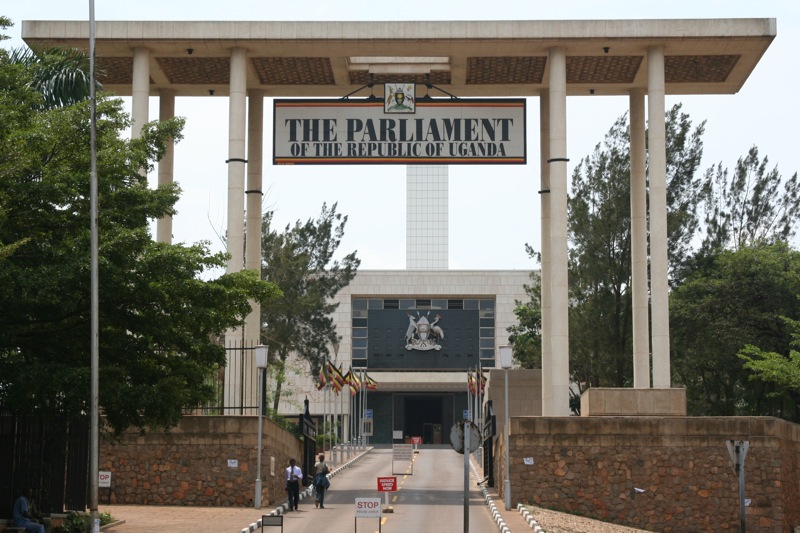Cultural diversity fascinates many, but how do differences between cultures arise? Joan Ricart-Huguet studies how cultures form and evolve by examining the case of Makerere University in Uganda, where halls of residence have distinct cultures despite students being randomly assigned to them.
Makerere University marked its centenary in 2022. The oldest university in East Africa and a cradle of political elites, its alumni include multiple presidents and prime ministers including Joseph Kabila (Democratic Republic of Congo), Julius Nyerere and Benjamin Mkapa (Tanzania), Mwai Kibaki (Kenya), and Milton Obote and Ruhakana Rugunda (Uganda).
Less well-known than its reputation for turning out political leaders, at least to those that have not studied there, is that some of its student halls of residence have developed different and distinct cultures. Lumumba Hall opened in 1971 and named after pan-Africanist leader Patrice Lumumba, has a tradition of social and political activism and is widely seen as a pro-social hall. By contrast, Livingstone Hall, opened in 1959 and named after Scottish missionary and explorer David Livingstone, is known as a “hall of gentlemen” and has a reputation for limited involvement in social affairs.
Given these differences, one would think that activists choose Lumumba Hall while “quiet types” choose Livingstone Hall. But students have been randomly assigned to residence halls since 1970, and yet these distinct qualities have endured.
Dean Hugh Dinwiddy and early cultural differentiation at Northcote Hall
Several haphazard or contingent events on campus led to the emergence of cultural differences between halls in the 1960s and early 1970s.
In the 1960s, the Dean of Students at Makerere University was Hugh Dinwiddy, a Cambridge-educated scholar of English literature and an avid sportsman. Every year, Dean Dinwiddy would contact the headmasters of Uganda’s secondary schools and encourage the best students and sportsmen in their graduating classes not only to join Makerere but to reside in Northcote Hall. Dean Dinwiddy was also the Warden (Head) of Northcote Hall and he wanted the best students and athletes. Warden Dinwiddy would encourage those students to rank Northcote as their first choice, Dean Dinwiddy would then ensure their choice was respected. As a result, Northcote Hall dominated interhall competitions in sports and literature and would routinely defeat other halls such as Livingstone Hall. As a result, they devised the motto ‘We either win or they lose’. Their prominence led Northcote Hall to be the first hall to have a ‘cultural ideology and symbols’ characterised by an extroverted and rowdy demeanour underpinned by high social cohesion.

Cultural formation at Livingstone Hall
Other halls responded by trying to develop their own cultures, ones that would comprise the broad attributes of Makerere, such as academic excellence, but also differ from the cultural traits of Northcote Hall residents. This process is explained by Optimal Distinctiveness Theory (ODT), the idea is that “social identity is a compromise between assimilation and differentiation from others”, as social psychologist Marilyn Brewer put it. Consistent with ODT, intergroup (interhall) competition for status facilitates cultural formation by generating differentiation.
In the 1960s, before randomisation, the residents of Livingstone Hall included many medical students because of its proximity to the University Hospital in Mulago Hill, Kampala. According to Ugandan cabinet minister Ephraim Kamuntu, the culture of Livingstone developed “as a reaction to Northcote’s dominance.” Given the academic demands on medical students and the decision of the colonial-era University Council to name the hall after David Livingstone, it developed a “Gentlemen’s culture” in contrast to Northcote Hall’s competitive spirit.
Lumumba Hall: ‘a hall of rejects’
More surprising is why Lumumba Hall became an activist hall in the 1970s when Uganda was ruled by Idi Amin. The hall opened in 1971, after Dean George Kihuguru had randomised assignments to halls. While Dean Kihuguru assigned first-year students to halls randomly, he asked the wardens of the other four halls to provide him with a list of sophomores and juniors to populate Lumumba so that the hall would have students from all years. The result of this original sin was a concentration of “rejects”, as a former Vice Chancellor put it, from naughty students to social and political activists. Residents of Hall X, as it was called in 1970, gathered in the Common Room and decided to honor pan-Africanist leader Patrice Lumumba by naming the Hall after him. The biased composition of Lumumba Hall residents in 1970-71 had immediate implications: the students’ plans to overthrow dictator Idi Amin were designed in Lumumba Hall and soldiers entered Lumumba Hall during the 1976 Operation Entebbe.
Cultural persistence and change
These cultural differences have persisted decades after randomisation. Each year since the 1960s, students elect a hall cabinet composed solely of students. Hall cabinet ministers have long promoted the identification of first-year students with their hall’s culture during Orientation Week and Culture Week, which included social activities such as morning jogs, porridge nights, and bull-roasting. In short, leaders and the social and political hierarchy of each hall are key to the continuation of culture. Around 30 per cent of the residents in halls graduate each year. That is a high replacement rate but seemingly low enough. The majority that stays from one year to the next carries on the broad strokes of a hall’s culture over time even if practices gradually change.
Cultural change is not always gradual though, it can sometimes be dramatic. Conflict between halls led the successor of Dean Kihuguru to close Northcote Hall in 1995. The hall reopened in 1997 with new students and a new name. This student replacement of 100 per cent proved too sharp of a cultural shock and, despite the efforts of Northcote Hall alumni, the hall continues to operate but has lost its culture.
Beyond Makerere University
The setting of Makerere is unique, but the findings speak to the broader question of how cultural differences arise, persist and change. This is a topic that has interested many, from anthropologists like Margaret Mead a century ago to a wide range of social scientists today (see, for example, The Secret of Our Success by Joe Henrich). Beyond dichotomies that pit the homo economicus against the homo sociologicus, both instrumental and social motivations explain social norm adoption and cultural adaptation particularly in the University setting.
Read the full article in the Journal of Modern African Studies.
Photo credits: Joan Ricart-Huguet and Andrew Moore used with permission CC BY-SA 2.0






